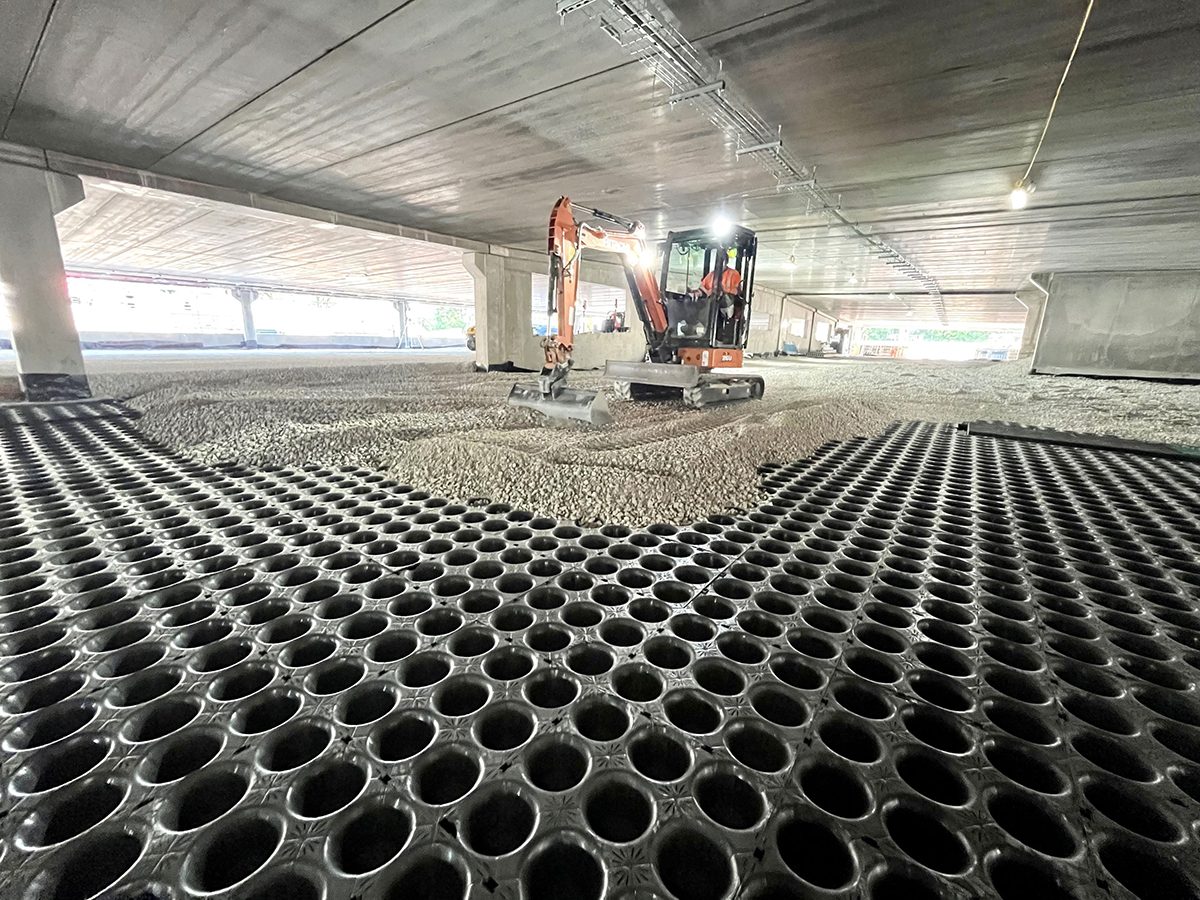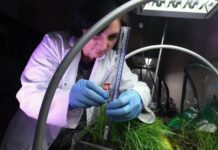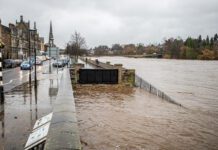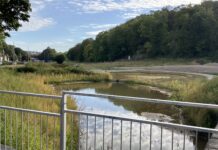
Sustainable drain cleaning technology deployed by Lanes Group plc has supported the installation of a ground-breaking ‘super-thin’ source control stormwater attenuation system that has saved the NHS considerable costs during the construction of a new hospital car park, according to the group.
The innovative system, developed and manufactured in the UK, has also contributed to the NHS’s net zero commitments – in part by preventing the need to excavate and move hundreds of tonnes of earth and foundation aggregate.
Drainage engineers at the Lanes Manchester depot have used a recycler jet vac tanker to clean silt traps in the giant water tank. The same height as a tea mug, it now stretches across the entire footprint of the 3,500m2 multistorey car park.
SEL Environmental, based in Blackburn, Lancashire, has installed its novel Formavoid sustainable drainage system (SuDS) at the North Manchester General Hospital for Morgan Sindall Construction.
The tank sits within the car park’s subbase and holds rainwater while it is released into the surface water drainage system in a controlled way to prevent flooding.
SEL Environmental commissioned Lanes to clean 18 sumps that trap silt before the water enters the tank and to carry out a CCTV drainage survey as part of the process of handing over the new car park to the NHS.
Morgan Sindall Construction has built the new 964-space car park as part of £36.5m of enabling works ahead of the wider rebuilding of the hospital estate.
Lanes Manchester Area Development Manager Ian Clapham said: “We’ve been delighted to support SEL Environmental in what is a truly awesome water attenuation scheme for this car park development.
“Installing a water storage system in this way delivers huge environmental and financial benefits and we’re glad that we’ve contributed to a very sustainable project with our own energy and resource efficient water jetting technology.”
SEL Environmental was called in to design and install the stormwater attenuation system needed to manage water run-off from the car park located on an already intensively used site.
A conventional approach would have been to install a large, deep attenuation tank which would have required the excavation of hundreds of tonnes of earth.
This would have been a very costly and challenging solution because of the array of underground services including sewers, water pipes and other utility assets criss-crossing the development site.
Instead, SEL Environmental designed a low carbon subbase attenuation system, incorporating its patented Formavoid technology, to capture water within the foundation layer of the car park.
The Formavoid system is manufactured in Lancashire and is made from 100% recycled plastic. It integrates within an open-graded subbase to enhance the void ratio of aggregate, improve stability and reduce construction depths.
Despite being just 100mm thick, the solution installed at Manchester General Hospital could hold an astonishing 300 cubic metres of water.
SEL Environmental Managing Director Andy Shuttleworth said: “One lorryload of our Formavoid system replaces 37 lorryloads of foundation material, so that’s a lot of truck movements and material saved.
“Those savings can be added to the resource, time, energy and cost savings made by not having to construct a large attenuation tank, and contributes to a significant reduction in the project’s carbon footprint. So, we were very pleased to have been able to present this solution.
“Once our tank is in place, the only task necessary is to clean the silt traps so the water can flow freely through the system. It was good that Lanes could use its sustainable water jetting system to help us do this.”
Lanes has the largest fleet of recycler jet vac tankers in the UK. The specialist vehicles can filter and reuse their water, making them 62% more productive, while consuming less water and less fuel.
Ian Clapham said: “As climate change makes our weather systems more volatile with longer periods of heavy rain throughout the year, smart SuDS solutions like this will become all the more critical.
“What’s impressive is that they also support reduced energy use, which contributes to the UK’s Net Zero by 2050 commitment. It’s why Lanes is determined to support their installation and maintenance with equally advanced asset surveying and cleaning systems.”
For more detail see www.lanesfordrains.co.uk







